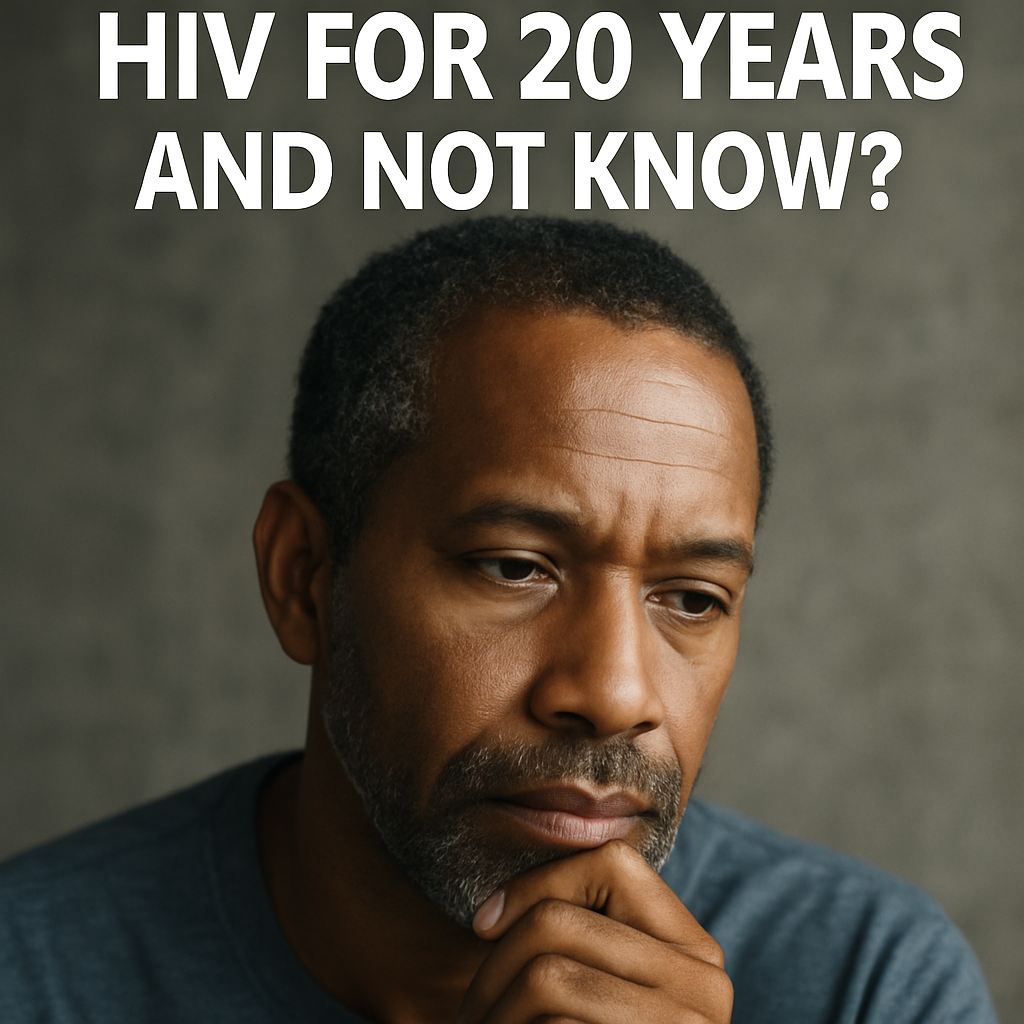Is it possible to have HIV for 20 years and not know it? Surprisingly, the answer is yes. Some people live for decades with undiagnosed HIV, unaware they carry the virus. HIV can be silent for many years before causing noticeable symptoms, making routine testing essential for early detection and treatment. In this article, we explore how this can happen, what the risks are, and why it’s never too late to get tested.
Table of Contents
- How HIV Can Remain Undetected
- Silent Symptoms: What to Watch For
- Long-Term Effects of Untreated HIV
- Why Early Testing Matters
- What to Do If You Suspect Long-Term HIV
How HIV Can Remain Undetected
HIV doesn’t always show immediate signs. After the initial infection, some individuals go through a brief flu-like illness known as acute HIV syndrome. But after that, the virus can quietly weaken the immune system over years without dramatic symptoms. This phase, called the chronic or clinical latency stage, can last a decade or more—especially without testing or medical intervention.
During this time, someone may feel healthy and not suspect anything is wrong. In fact, many individuals are only diagnosed when the virus has progressed to advanced stages. Without regular screening, HIV can remain hidden for years, even decades.
Silent Symptoms: What to Watch For
Though the virus may stay quiet for years, subtle symptoms often arise along the way. These may include:
- Recurring fatigue or weakness
- Unexplained weight loss
- Night sweats or frequent fevers
- Persistent swollen lymph nodes
- Chronic diarrhea or skin rashes
Unfortunately, these symptoms can mimic other common illnesses. That’s why many people overlook them or attribute them to stress, aging, or unrelated conditions.
Long-Term Effects of Untreated HIV
Living with undiagnosed HIV for 20 years can lead to serious health consequences. Over time, the virus depletes CD4 cells, which are crucial to immune defense. This weakens the body’s ability to fight infections and diseases, potentially leading to AIDS.
At this stage, people become vulnerable to opportunistic infections like tuberculosis, certain cancers, and pneumonia. Cognitive issues, nerve damage, and cardiovascular problems may also arise. According to the CDC, untreated HIV increases the risk of serious illness and death—but treatment can still improve outcomes significantly, even after years without care.
Why Early Testing Matters
Getting tested is the only way to know your HIV status. Early detection allows people to start antiretroviral therapy (ART), which helps keep the virus under control and protects the immune system. Today’s HIV treatments are highly effective, often reducing the viral load to undetectable levels—making the virus untransmittable through sex, known as U=U (Undetectable = Untransmittable).
Testing is quick, confidential, and available at many clinics and community centers. The Healthcare.pro website can help you find free or low-cost testing options in your area. Knowing your status empowers you to protect your health and others.
What to Do If You Suspect Long-Term HIV
If you’ve never been tested or believe you might have been exposed years ago, it’s important to act now. Even if you feel fine, HIV could still be affecting your body. Here’s what you can do:
- Schedule an HIV test as soon as possible
- Talk to a healthcare provider about any symptoms or concerns
- If diagnosed, begin treatment immediately
- Inform partners and encourage them to get tested
It’s never too late to take control of your health. With proper care, people living with HIV can live long, healthy lives—regardless of when they were diagnosed. Learn more about HIV treatment and care from eHealthcare Solutions.
Conclusion
Yes, someone can have HIV for 20 years and not know it. But that doesn’t mean it’s hopeless. Awareness, testing, and treatment can make all the difference. Whether you’re concerned about past exposure or just want peace of mind, getting tested is the first step. HIV is no longer a death sentence, but early action is key.
FAQs
Can HIV really stay hidden for 20 years?
Yes, especially if no symptoms arise and no testing is done. It may remain undiagnosed for decades.
Is HIV still treatable after 20 years?
Yes. While long-term damage may have occurred, antiretroviral therapy can still improve health and reduce the virus.
What are the early warning signs of HIV?
Fatigue, weight loss, night sweats, swollen lymph nodes, and frequent infections may be signs—but testing is the only way to know.
How often should I get tested for HIV?
The CDC recommends at least once for everyone aged 13–64, and annually for those at higher risk.
Can I live a normal life with HIV?
Absolutely. With treatment, people with HIV can live long, healthy, and productive lives.
This content is not medical advice. For any health issues, always consult a healthcare professional. In an emergency, call 911 or your local emergency services.




